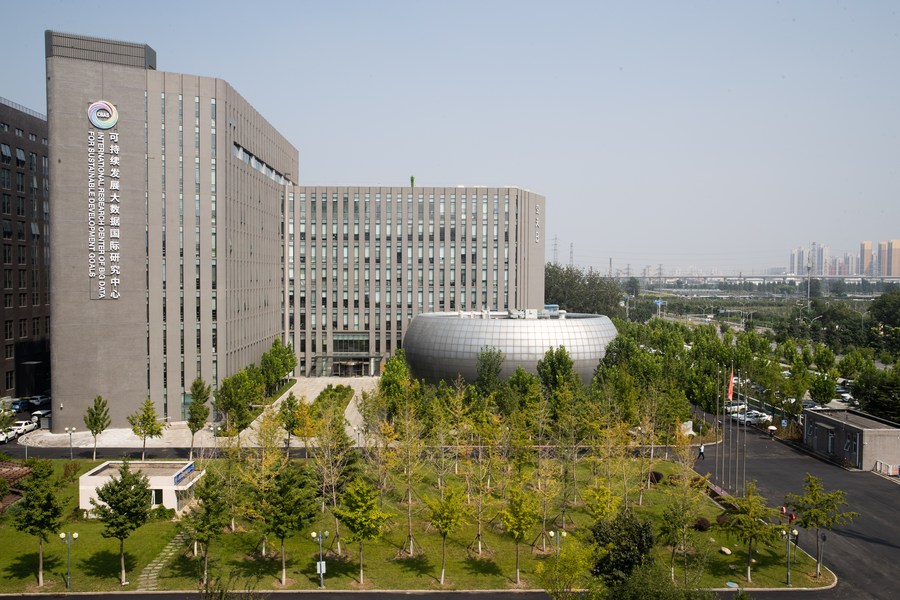China Supports Sustainable Development of BRICS

The International Research Center of Big Data for Sustainable Development Goals in Beijing. (PHOTO: XINHUA)
By TANG Zhexiao
The Chinese Academy of Sciences (CAS) said it will enhance dialogue and collaboration with its peers from BRICS countries to use big data as a tool to achieve sustainable development, according to the BRICS Forum on Big Data for Sustainable Development held both online and offline on April 26.
Themes of big data in support of food security and poverty alleviation, the digital economy, sustainable urban development, climate actions and disaster reduction, and biodiversity conservation were included in the forum, while a series of data products to support scientific research on the sustainable development goals (SDGs) of BRICS countries were released.
These products include data from BRICS countries collected by CAS's first Earth science satellite SDGSAT-1, mapping the global spatial distribution of forest cover at a resolution of 30-meter in 2020 and core urban built-up areas in BRICS cities with population over 300,000 from 2000 to 2020.
The BRICS countries share a strong desire and commitment for closer cooperation to ensure future collective sustainable development. Within this context, China proposed to organize a BRICS Forum on Big Data for Sustainable Development in order to support the 14th BRICS Summit, which will be hosted in China this year.
With the goal of serving the United Nations 2030 Agenda for Sustainable Development, the forum will further strengthen the dialogues, promote the cooperation mechanism, and enhance international scientific and technological exchanges and cooperation among BRICS countries.
Guo Huadong, director-general of the center, said data products containing remote sensing and Earth sciences data would provide support for BRICS countries to carry out scientific research on SDGs.
Currently, due to the lack of digital infrastructure and data support, it is difficult for some experts and policymakers in low-income countries and regions to accurately evaluate the situation and make scientific decisions, said Guo, adding that it was necessary to coordinate global scientific and technological resources.
Narinder Kumar Mehra, vice-president of the Indian National Science Academy, said BRICS scientific communities can play a vital role in promoting science, technology and innovation to improve health and education, reduce inequality and facilitate sustainable development as well as peace and prosperity.






